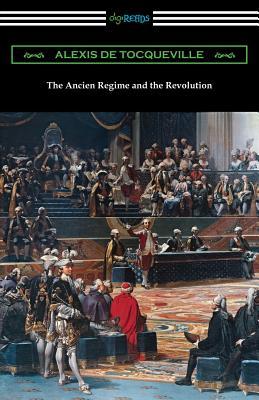First published in French in 1856, French diplomat and political scientist Alexis de Tocqueville's "The Old Regime and the French Revolution" is one of the most influential treatises written on the French Revolution. Tocqueville begins by tracing the causes of the French Revolution to the structure of society of France prior to the Revolution, what he terms the "Ancien Regime". Tocqueville rejected the notion that the Revolution was a radical transformation of French society. He instead suggests his theory of continuity, specifically that the Revolution was not an attempt to change the nature of society in a truly fundamental way, but to wrest control from the ancient, feudal landed aristocracy and replace those outdated institutions with a representative democracy. He makes the important observation that the government of Napoleon was autocratic, strongly centralized, and thus not much different from the "Ancien Regime". Tocqueville was a fierce proponent of social institutions based on freedom and equality rather than on the rigid social hierarchy of the feudal social system of the Middle Ages, a system that was increasingly untenable in the age of enlightenment. Tocqueville's treatise remains a timely and important work on social class, revolution, and democracy. This edition is printed on premium acid-free paper and follows the translation of John Bonner.

First published in French in 1856, French diplomat and political scientist Alexis de Tocqueville's "The Old Regime and the French Revolution" is one of the most influential treatises written on the French Revolution. Tocqueville begins by tracing the causes of the French Revolution to the structure of society of France prior to the Revolution, what he terms the "Ancien Regime". Tocqueville rejected the notion that the Revolution was a radical transformation of French society. He instead suggests his theory of continuity, specifically that the Revolution was not an attempt to change the nature of society in a truly fundamental way, but to wrest control from the ancient, feudal landed aristocracy and replace those outdated institutions with a representative democracy. He makes the important observation that the government of Napoleon was autocratic, strongly centralized, and thus not much different from the "Ancien Regime". Tocqueville was a fierce proponent of social institutions based on freedom and equality rather than on the rigid social hierarchy of the feudal social system of the Middle Ages, a system that was increasingly untenable in the age of enlightenment. Tocqueville's treatise remains a timely and important work on social class, revolution, and democracy. This edition is printed on premium acid-free paper and follows the translation of John Bonner.